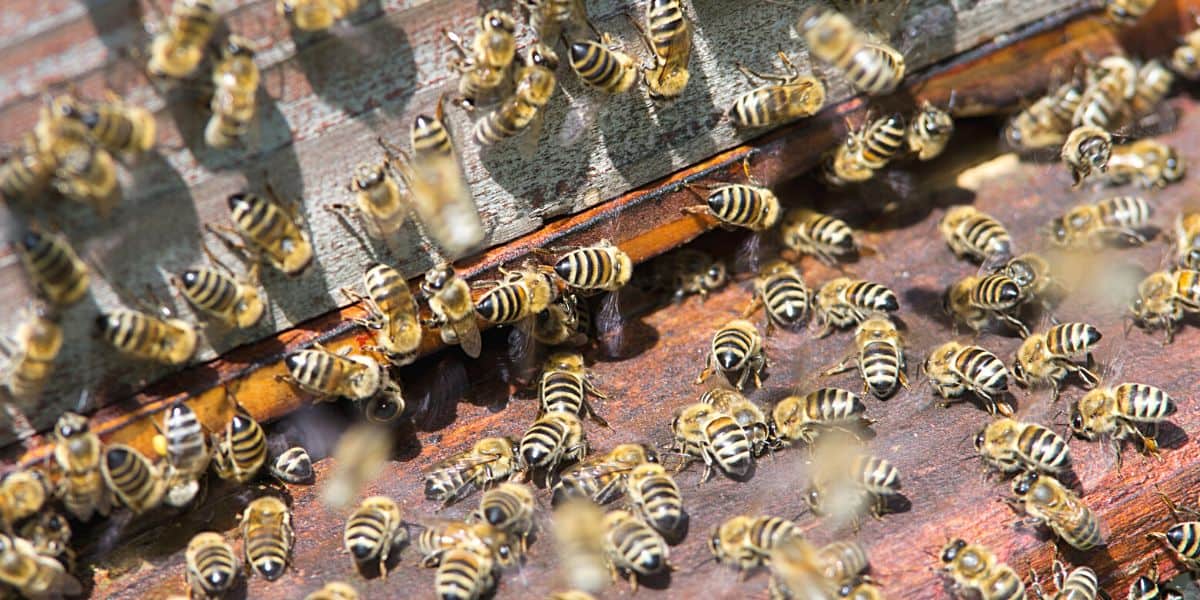Understanding the Seriousness of Bees in Your Vents
Bees in your vents represent not only a serious habitability issue but also a critical safety concern. Their presence can jeopardize your health, well-being, and the structural integrity of your living space. As a tenant, it is imperative to approach this problem systematically and legally to ensure effective resolution while protecting your rights and safety.
This comprehensive guide provides detailed instructions on how to document the issue, communicate with your landlord, utilize legal avenues, and take necessary actions under Illinois law in the year 2025. We also emphasize the importance of professional or tenant-rights assistance throughout the process. Our aim is to equip you with knowledge and practical steps to face this challenge confidently.
Why Bees in Vents Are a Serious Problem
Bees can create large colonies within ventilation ducts, leading to several negative effects. Their presence can obstruct airflow, reduce ventilation efficiency, cause allergic reactions in sensitive individuals, and increase the risk of stings or even serious medical emergencies. Moreover, their nests may damage vent structures, compromise air quality, and foster mold or other pest infestations.
From a habitability standpoint, this invasion undermines the basic living conditions that tenants have the right to expect. From a safety perspective, unresolved bee presence can create hazardous environments, forcing tenants to seek immediate intervention and possible remedies under tenant protection laws.
Documenting the Issue Thoroughly
Proper documentation is the cornerstone of addressing the bee infestation effectively. Here’s what you need to do:
- Take clear, dated photos and videos of bees in and around the vents.
- Record dates and times when the infestation is observed.
- Keep copies of any correspondence with your landlord or property manager concerning the issue.
- Maintain a personal log of any incidents such as bee stings or ventilation problems.
- Collect statements from neighbors or other tenants who might also be affected.
Communicating with Your Landlord Effectively
Once documentation is gathered, you must notify your landlord formally and clearly. The most effective method includes sending a written demand with a concise deadline for repair or pest removal. We recommend the following approach:
- Draft a professional letter outlining the bee problem and the dangers it poses.
- Specify a reasonable deadline for response or action, such as seven calendar days.
- Send the letter via certified mail or email with delivery confirmation to provide proof of receipt.
- Retain copies of all communications for your records.
This method establishes a clear record of your complaint, holding the landlord accountable and facilitating potential legal proceedings should enforcement become necessary.
If the Landlord Does Not Act: Next Steps
Should the landlord fail to respond or remediate within the set deadline, further action is required to protect your health and legal interests.
The following steps can be considered under Illinois law:
- File a complaint with the local health department or building inspection department. These agencies can conduct inspections and mandate corrective actions.
- Consult the Illinois Residential Landlord and Tenant Act to understand your rights related to habitability and safety.
- Consider repair-and-deduct procedures, but strictly follow Illinois rules, which require proper notice and adherence to legal limits.
- Contemplate withholding rent only if all legal requirements are met, including sufficient documentation and timely landlord notification.
Understanding the Repair-and-Deduct and Rent Withholding Options in Illinois
Illinois law permits tenants to undertake certain repairs themselves and deduct the cost from rent, provided specific conditions are met. This option can be viable when the landlord refuses to address urgent issues such as bee infestations creating unsafe living conditions.
Key legal considerations include:
- The issue must materially affect health or safety.
- Tenant must give written notice to landlord specifying the problem and allowing reasonable time for remediation.
- The total cost of repair must not exceed one month's rent.
- All receipts and documentation of repair expenses must be preserved for potential disputes.
Any deviation from the statute’s provisions can expose the tenant to eviction or legal liability. Therefore, exact compliance with Illinois rules is mandatory.
When to Consider Lease Termination
If the bee infestation persists despite your efforts and the landlord's inaction, the premises may be deemed unsafe and uninhabitable. In such cases, tenants may have legally justifiable grounds to terminate the lease early without penalty.
However, ending a lease prematurely involves complex legal criteria, including proving the habitability breach, proper notice to the landlord, and potential involvement of housing authorities or courts.
Before taking this step, it is essential to:
- Consult with tenant-rights organizations or legal counsel experienced in landlord-tenant law.
- Ensure that all documented evidence is comprehensive and accurate.
- Understand the implications for deposit return, liability, and future housing considerations.
The Importance of Expert Assistance
Navigating bee infestations and landlord-tenant disputes can quickly become legally and emotionally taxing. Seeking expert advice through legal professionals or tenant-rights groups can provide clarity and support.
Our company, Legal Marketplace CONSULTANT, specializes in offering thorough legal assistance and guidance to tenants facing habitability and safety issues. We advise timely communication, strict documentation, and judicious use of legal remedies.
If you require precise, reliable support tailored to your situation, please reach out to us through our bio communications or send a direct private message.
Summary of Practical Steps
- Identify and document the bee infestation extensively using photos, videos, and logs.
- Send a clear, written demand to the landlord with a definitive short deadline, using certified mail or email with confirmation.
- If ignored, file complaints with relevant local health or building authorities promptly.
- Only proceed with repair-and-deduct or rent withholding by strictly following Illinois law requirements.
- Consider lease termination if the property remains unsafe after all attempts to resolve have failed.
- Maintain all records meticulously and seek professional legal advice before taking significant legal actions.
Bee infestations in ventilation systems present serious hazards that must not be ignored. Tenants have rights and avenues for remedying such conditions, but success depends on thorough documentation, clear communication, and adherence to legal procedures.
Legal Marketplace CONSULTANT encourages affected tenants to act decisively and informedly, using the steps outlined in this article to protect their health and housing rights in Illinois in 2025.
Remember, expert advice and support are crucial when confronting complex habitability issues. If you need professional help, do not hesitate to contact us through our official communication channels or via private message.
Legal Marketplace CONSULTANT specializes in comprehensive legal services for tenants facing housing and safety challenges. Our team includes attorneys, legal consultants, and tenant-rights advocates committed to protecting your rights and wellbeing.































